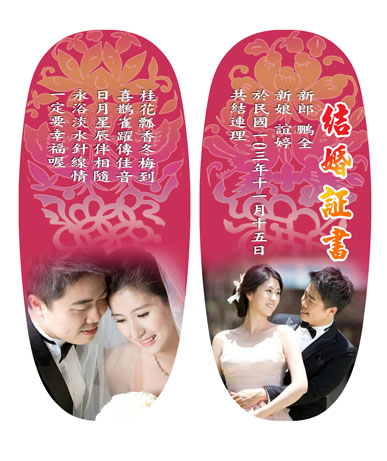Consultant of Bai-mi Wooden Clog Village in Su’ao, specialist/lecturer of Yu Yu Yang Museum, Marketing Manager of Lee Gallery.

Photo courtesy of Hung Kuo-hsiung
A few years ago I accepted a friend’s hearty invitation to visit Bai-mi Wooden Clog Village in Su’ao, northeastern Taiwan. I still remember on the first day there I was fascinated by the idyllic and clean environment that first greeted the eye, and deep down inside I told myself I’d made the right decision to be there.
The pleasant sight in front of me was the fruitful labour of over ten years of hard work by a small community of mothers. For instance, they demanded the rerouting of factory dump trucks to give residents a good quality of life. They even took the risk to put up a fight against the factory for a safe and comfortable environment for raising their children, undaunted by the prospect that their husbands might lose their factory jobs if an agreement could not be reached. Fortunately for everyone, their true grit and courage against the odds prevailed; besides finding alternative new paths for the rerouted dump trucks, the factory is now also giving back to the community every year by donating to a designated fund. This was when the community began to take shape.
Just when they thought the biggest problem was out of their way, another bigger issue was about to surface. Though the elderly residents considered a community clean-up superfluous and a waste of money, a few mothers who wanted a better living environment for their children decided to walk the talk and make a difference starting from their own home. They spent one day per week to fix up the community while the elderly were taking an afternoon nap and the kids were in school. About half a year later, as residents found their community to be almost brand-new again, they were gradually galvanising themselves into doing the clean-up together. Something embarrassing happened during this time though; old ladies were reported to have shunned the project-related communicators upon spotting them.
Getting started is always the hardest part, but thankfully these steely-minded mothers strove towards their goals in different ways—some comforted the elderly, some liaised with public service departments, while others researched about traditional food and most importantly, learned about Bai-mi’s traditional wooden clog industry and its century-old relationship with the Bai-mi community.
During the Japanese occupation, logging was a monopolised industry in Taiwan. The urn-like terrain of Bai-mi Village is conducive to growing Chinese tulip trees, which yield hard wood suitable for making wooden clogs. But as the plastic industry started to thrive after the war, many wooden clog craftsmen retreated from the business in search of other jobs. However, persistent persuasion from the Bai-mi mothers finally got the craftsmen to make a comeback and prove themselves just as skilful after all these years.
As traditional wooden clogs have lost their appeal nowadays, we keep wondering how to apply the “old is new again” rule to find a new direction. The masters’ obstinate resistance to new ideas seemed to pose an overwhelming challenge for all those involved. We have difficulties in nurturing the wooden clog masters to gear with a friendly and professional business approach and to improve self-confidence in their own products.
From key rings to prayer slats to trendy wooden clog sandals, everyone was racking their brains to come up with more ideas for wooden clog-related cultural merchandise. They felt the proudest when they found inspiration in the Chinese proverbs. Take “the husband sings and the wife follows/One step at a time” for example. It is used as a metaphor for building a solid foundation for one’s marriage, which inspired the creation of customised wooden clogs with a marriage certificate applied with traditional techniques and imaging technology. The marriage-related cultural gifts, which bring profound meaning to the occasion, have remained the community’s signature products to this day. This hot trend is likely to be continued with more creative designs featuring documents that mark one’s graduation and employment.
Human is great because we are dreamers. These mothers might have already passed their prime as time goes by, but their commitment to building the community and contributions to the cultural industry will always reinforce their status as role models. I have to say this out loud, “You Bai-mi mothers are the most beautiful people in the world!”